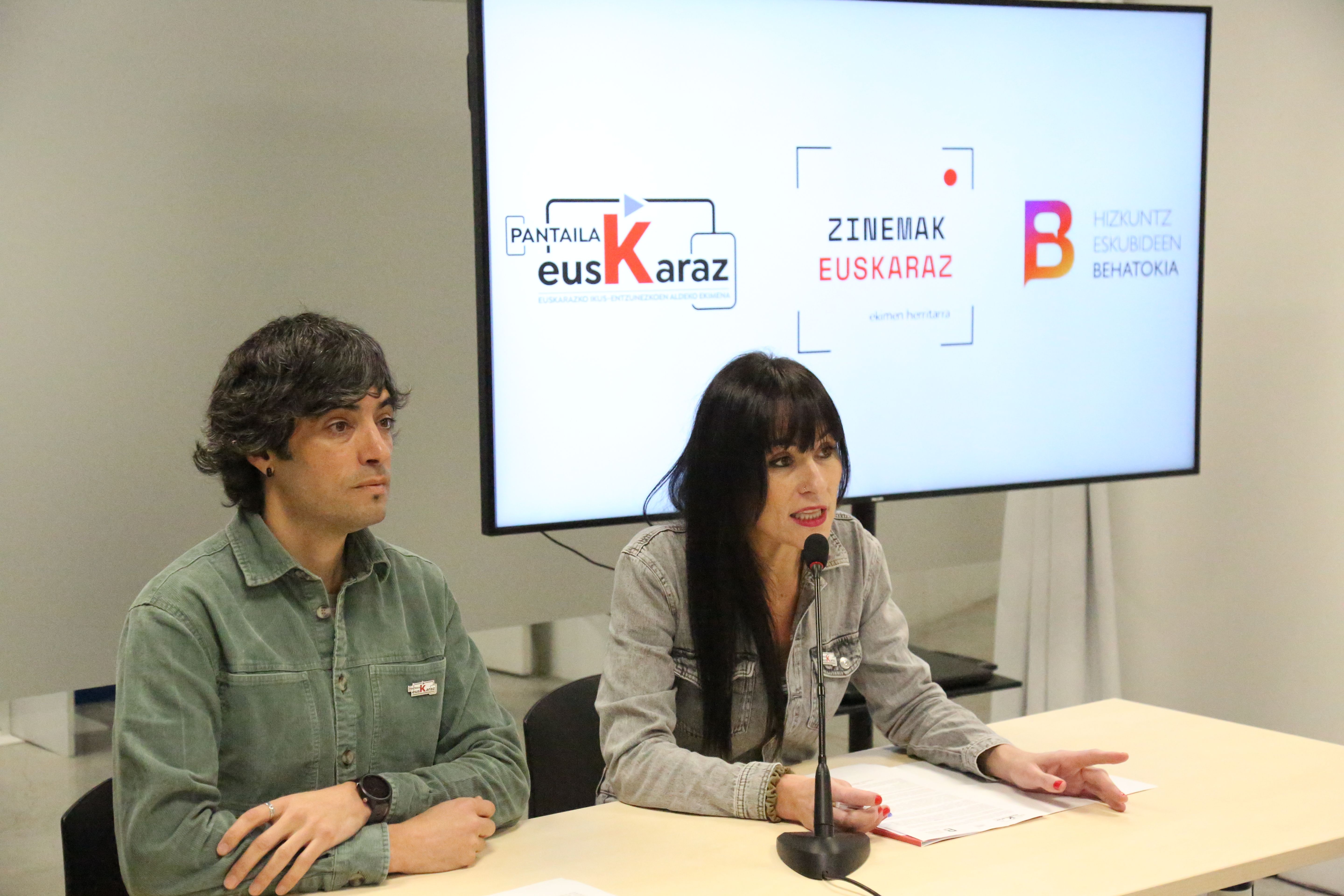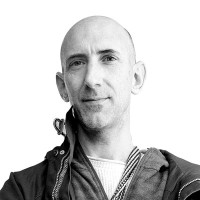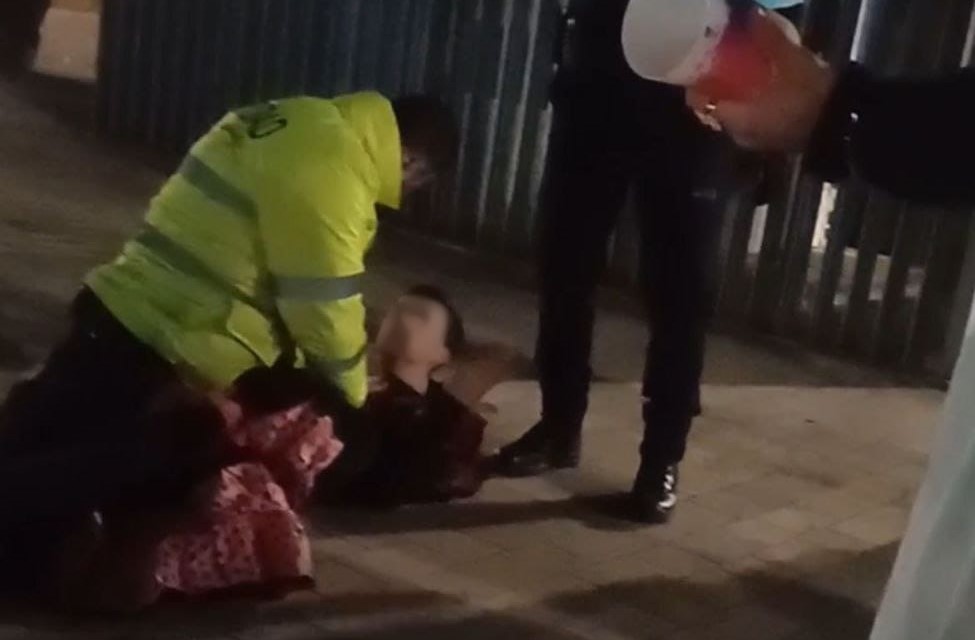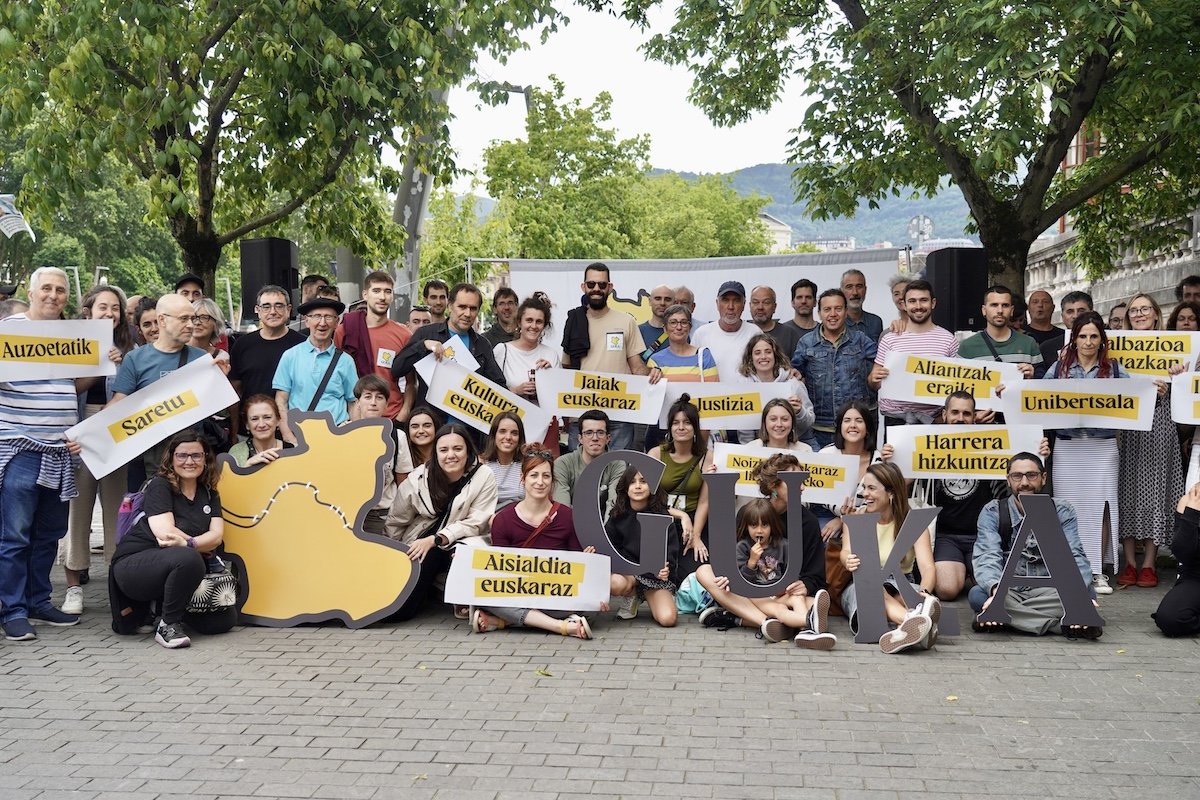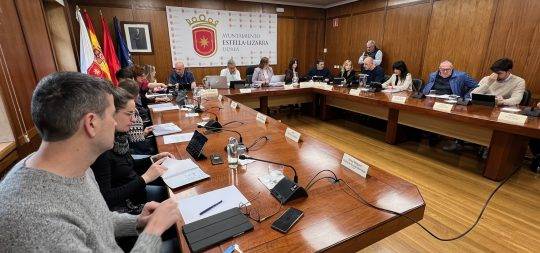"I tried to raise people's awareness more than teaching Basque"
- Born in Alkiza but without Beterri, Pello Joxe Aranburu has lived in Goierri. Following the late Hiazinto Fernandorena Setién, he worked closely in the Basque world in the 1960s, and with great relief in the years after the death of the dictator Franco.
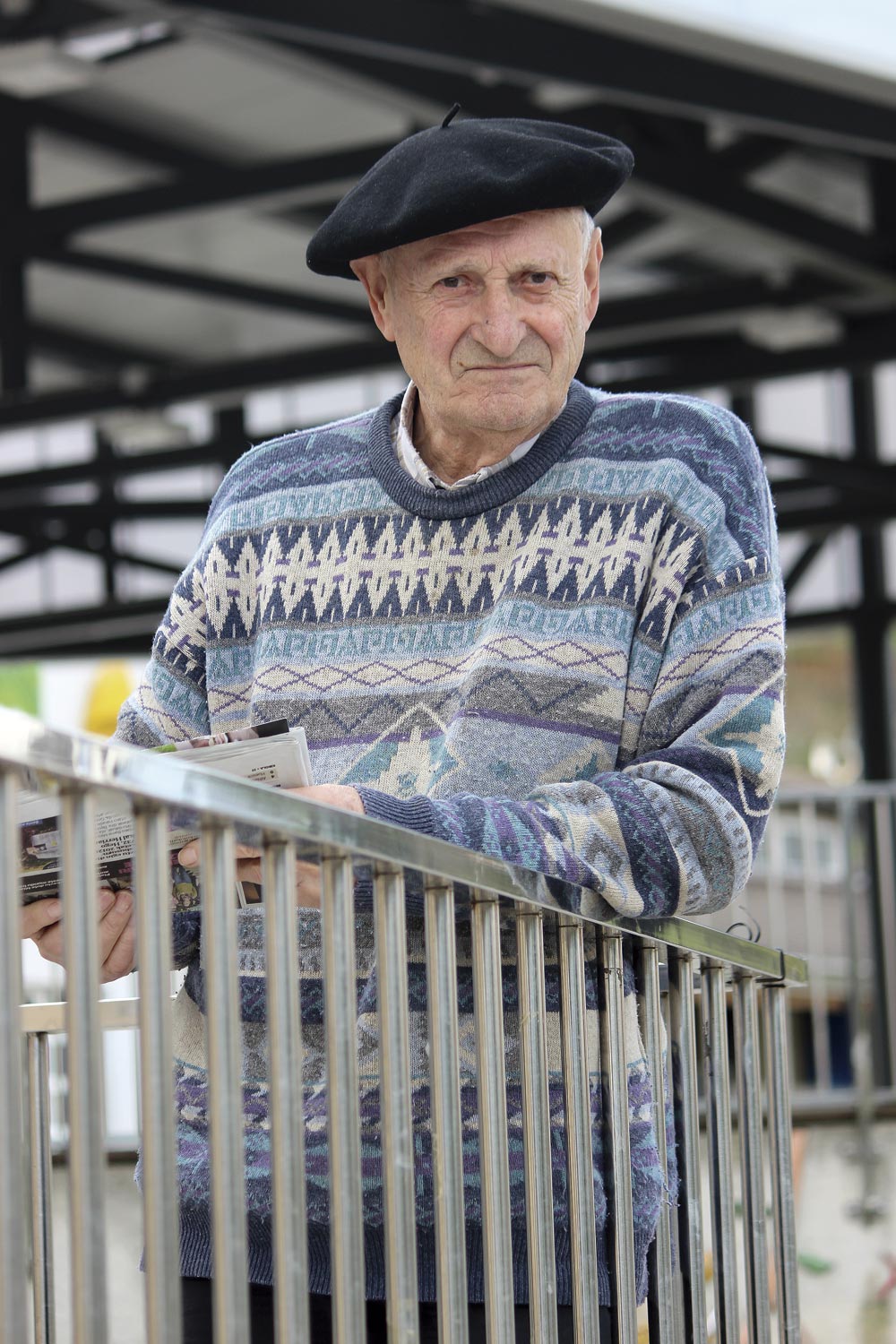
Apaiz ikasketak egina Saturraran eta Donostiako apaiztegietan. Ezkio-Itsasoko Alegi auzoan izan zuen lehen apaiz destinoa. Baserri Gaztedi eta Herri Gaztedi mugimenduan lan egin zuen. Apaiz langile izan zen, lantegian, gau-eskoletan, Goierriko Euskal Eskolan eta Lazkaoko Maizpiden. Irakasle jardun zuen urte askoan, erretiratu zen arte. Hainbat liburu ditu eginak. Gaur egun, mintzalagun talde bat gidatzen du Zizurkil bizitokian, eta hitanoa ere irakasten ari zaio besteren bati. Ahotsak.eus webgunean bildua dute Pello Joxe Aranbururen lekukotasun bizia.
What do you do by saying that you are a bad speaker?
Yes, then, that I am a bad speaker.
We should have written it. You are the author of several books.
Over twenty.
You were a cure...
And I am! I haven't lost that being yet.
Bad speaker, you say, but rhetoric was part of ecclesiastical studies.
At the seminar in San Sebastian, they tried to prevent them from speaking to us. In disuse. The priest Jaime Sáez. He said that the Basque language was the language of the baserritars, that it was not worthwhile, that it was not a cultured language. He said it in public.
Born in 1936 in Urruzola de Alkiza.
I'm before war. In our country they were Carlists, there is no doubt, but at the time of the war the supporters of the Republic took away the one who had previously been mayor and placed our father. My father had his ideas, but at home he didn't say much. I had a brother who worked at the Hacienda de San Sebastian, who worked as secretary, and I think my father was at his mercy.
The father died at the age of 11 due to an accident.
I just found out how it happened. He died in Donostia-San Sebastian, at his brother's house, and the woman's body was transferred to his home. I remembered that I saw him from the window, looking at the older brother and me. The thing is, his father was a hunter, a feather fan, and he died as he hunted the hare, firing on the hare... When my father died, they had to invent at home some solution for me, and they put me on my way to the seminary. There was a priest, Don Anjel Garmendia, from Alkiza, who was in Aretxabaleta. My aunt worked in her service and there they took me to study grammar, Spanish, so I could have access to the seminary.
You entered.
But not in the first one. I spent the year studying grammar, preparing the exam to enter the seminary. I did the entrance test and I didn't pass it. So I did another year preparing the access test, but in Donostia, in Miraconcha. There was a nuns' house. The examination is carried out for the second time, and is approved and carried out in Saturraran. There they were professors Emiliano Iturraran, Andoni Basterretxea, Anton Garro, Juan Beristain.. euskaltzales and abertzales. We learned dances, customs, songs -- at Saturraran. I remember Don Andoni [Basterretxea] telling us that before we were a priest we had to be men. The person, I mean. Other older students than us were Joan Mari Lekuona, Juan Mari Aranalde, Joanito Dorronsoro, Hiazinto Fernandorena Setien... To me, for example, Hiazinto drove me, later, along my way.
They took you out of Saturraran and took you to the seminar in San Sebastian.
Yes. After four years in Saturraran, in Donostia. It was prison. At Saturraran we always had football, we always had a beach... In San Sebastian, none of that. Among the young seminarians, however, there was some agitation. Lukáš Dorronsoro, Jexux Gaztañaga, Juan Mari Aranalde, Hiazinto... they fought a lot for the Basque country. And so did the book Boga, Boga, Boga. Hiazinto, Boni Urkizu and Iñaki Ugalde worked on it.
When you were 24 years old, you were ordained a priest and assigned to the Alegi district of Ezdox-Itsaso. From the seminary jail, to the world.
I ordered it at the age of 24, but I did a year when the bishop did not give me a destination. Meanwhile, I was in Alkiza, at home. Jaime Font Andreu was then bishop of the Diocese of San Sebastian. We spent half a year waiting and we went to protest some young priests who were out of destiny, because I wasn't alone. Felix Ormaetxea and others were in the same situation. He went to the bishop and said, “Where they eat 12, eat up to thirteen!” He told us we were a few spare cartridges. “Spare cartridges!” says Font Andreu. Some priests then asked me to tell him those words from Font Andreu, but I didn't open the account.
.jpg)
You were ordained a priest in 1960, and that year is the letter made by the 339 priests here, in which they denounced the oppression of Basque culture.
Yes. Then I found out about the letter. Anyway, when I went to Alegia, to the destination, there was the priest, Ramón Aranburu, condemned for signing the letter. The atmosphere changed soon, soon after, with the Second Council. Pope John XXIII took place then. The council meant speaking in the language of the people, and that for us was a tremendous relief. Beginning of the liturgy in Basque, realization of sermons in Basque... It was a great thing. And so in that environment, I went back to literacy through Hiazinto. On the other hand, along with the movement that the Council brought, there was also something else that Valentín Zamora set in motion.
Baserri Gaztedi, or Herri Gaztedi.
Yes. The movement was within Catholic Action. Valentín Zamora was at the forefront of Baserri Gaztedin, but next to him was Jaime Sáez, pastor of the seminary, who served as guards. Just in case. On the occasion of Baserri Gaztedi, the Abades met at the seminar in San Sebastian, under the Catholic Action. We had a large number of meetings. We, in Gipuzkoa, but there was also movement in Bizkaia, Herri Gaztedi. Soon after, in 1966, I started working at the factory. That same day we started working at the factory three cures: Carlos Lamikiz, Jacinto and I. We talked, we agreed, we took advantage of the contacts and started in the factory on the eve of the 1966 Pilarica. We decided that we needed a small village, a small work center, because we weren't prepared to start working in a large factory. That's how we said it, and we started working. It started in the Hiazinto Ampo cooperative, in Idiazabal. Lamikiz, in Beasain, in the same village, in a small factory. I started in Ormaiztegi, in the LETAG factory.
Why did you start working in factories? Why do you heal and workers?
Because we wanted to join the workers. Another who started working like us at that time, Iñaki Larrañaga of Siadeco. The stipend we received from the bishopric, the money, we gave it to the ikastola. So we had agreed that he should break them, because they were the statues, because it was the church, that that didn't come into our thinking. We are opposed to this from the outset. At that time, there were many cures that we started working on, many. Some in the factory, others in the environment of the ikastola...
You wanted the workers, who were workers, many who stopped being priests.
Yes, there were many who abandoned the priest. First it was to stop being a priest and then get married. It was a streak. The sacramentines, the Passionists, the Benedictine, the Franciscans -- many abandoned the abbey.
And how about factory work?
OK. I remember the day before I started working at the factory, the skipper told the workers that the next day they would have a cure at work, working with them. He told him. The first day I went to work with the fountain. But then we strip him away to work. Moreover, in the Alegi district (Ezdox-Itsaso), I always walked with a fountain. There it was “On Peter.” Ha ha ha! When we started working, they received us very well, very well. I remember that first day, the three elders of Lasa and Garmendia came to speak to me at noon. I was sweating and working in the middle of my lungs. We worked in the morning, from eight to twelve in the afternoon. In the afternoon, our work was Euskera.
Were the ikastolas and night schools already in place?
Yes, yes! In the Goierri the first ikastola, or one of the first, was that of Lazkao. It was founded in 1963. And Jacinto was already there, focused on his work. There were also night classes, then or later, and there we also walked. I also met Rikardo Arrangi. Andoaindarra And I used to walk a lot in Andoain at that time, because there was my family. Ricardo Arrangi... He died in Mendaro in a traffic accident.
You, a professor at night school, had alphabetized yourself.
It was a difficult workshop. We needed material to give class, and we didn't need it. At first we used the Euskera method, hire lagoon, by Patxi Altuna. We didn't have anything else. In the end we had to create the material. I in the night school and Hiazinto in the work of the ikastola giving classes to the andereños. I would say we breathed when Franco died in 1975. We were able to do what we had not been able to do until then, and we started to do it.
You worked more.
I, for example, started teaching Euskera, absolutely. In 1972, I moved to Lazkao, along with Hiazinto. At that time, I was working at Beasain, at the factory, for eight hours. So we didn't teach. I started at night school, when Franco left, and there I made a living. Night schools, AEK, Gerriko, Maizorder... I lived the whole process. So, yes, it was great to teach Euskera. I was at ease: Basque, Basque culture, literature... I would say that I tried to raise people's awareness more than teaching Basque.

In 1980, you traveled around Israel.
We went with the Franciscan Imanol Berriatua. It was a two-week journey, in which it was about seeing the Israeli experience, how the Hebrew of Israel had recovered. We were about 40 friends, some academics, other teachers, responsible for literacy and Euskaldunization... I remember coming to Tel Aviv airport and it was a horrible heat. We saw the kibutz, we saw what they did to animate the Hebrew -- and since then, everyone brought their own plan to revitalize the Basque. A couple of years later, Dionysus [Amundarain] traveled to Israel, and he did, he brought a real plan. He applied the model in Lazkao. In September 1982 he began organizing courses all year round and years later, in 1988, he created Maizorder along that path.
Before, however, we have Gerriko.
Yes. The night classes were extended at the level of the Goierri, and Gerriko wanted to unite them all, organize them, in 1977. Gerriko was the Basque School of the Goierri, created to coordinate the work.
Has the work done been successful?
Yes, no doubt.
And, therefore, how do you see the current situation in Euskera?
There! Like I couldn't. Nowadays, the Basque Country lacks something, and that is a complex thing. The Basque country has to attract people. It has to generate emotions, something nice has happened... and the young people of today do not see the Basque. The Basque country does not attract young people. I think so.
“Askotan pentsatu izan dut apaiztegian unibertsitatean baino prestakuntza handiagoa ematen zela. Unibertsitatean ibilitako jende asko ezagutu dut, eta nire ustez, askoz prestakuntza handiagoa eskaintzen zuten apaiztegian, unibertsitatean baino”
“Ez dut mezarik esaten, ez naiz elizara joaten, hiletaren bat ez bada, behintzat. Ez dut ezer erlijioaren kontra, bateko eta besteko apaizekin biltzen naiz Donostian hilean behin, eta honetaz eta hartaz hitz egiten dugu. Giro horretan bizi naiz. Apaiz, ez apaiz, ez nago linboan, baina airean bai!”
“82 urte ditut, Zizurkilen bizi naiz, elementu jator asko ikusten ditut herrian, baina etorkizuna zail dagoela iruditzen zait, egundoko aldaketa garaia bizi dugulako. Aldatu da erlijioari buruzko sentipena, aldatu dira ohiturak... Ez dakit nora goazen. Dena zintzilik dagoela iruditzen zait. Zaila dago”
“Hiazintok markatu zizkidan bideak. Mila gauza zor dizkiot berari. Besteak beste, 60ko hamarkadaren hasieran nire burua alfabetatzen jartzen hastea. Besteak beste, lantokira pausoa ematea... Besteak beste, hau, hori eta hura. Hiazinto nuen zuzendari espirituala, esateko moduan. Ez dut Hiazinto behin ere ukatuko”.
Asteburu honetan hasiko da Gaztetxeak Bertsotan egitasmo berria, Itsasun, eta zazpi kanporaketa izango ditu Euskal Herriko ondorengo hauetan: Hernanin, Mutrikun, Altsasun, Bilboko 7katun eta Gasteizen. Iragartzeko dago oraindik finala. Sariketa berezia izango da: 24 gaztez... [+]
“Bi pertsona mota daude munduan: euskaldunak, batetik, eta euskaldunak izan nahiko luketenak, bestetik”. Gaztea zela, Mary Kim Laragan-Urangak maiz entzuten omen zuen horrelako zerbait, Idahon (AEBak), hain zuzen. Ameriketan jaio, hazi, hezi eta bizi izandakoak 70... [+]
Pantailak Euskarazek eta Hizkuntz Eskubideen Behatokiak aurkeztu dituzte datu "kezkagarriak". Euskaraz eskaini diren estreinaldi kopurua ez dela %1,6ra iritsi ondorioztatu dute. Erakunde publikoei eskatu diete "herritar guztien hizkuntza eskubideak" zinemetan ere... [+]
Administrazioko hainbat gai, LGTBI+ kolektiboko kideen beharrizanak, segurtasun subjektiboa, klima aldaketa, gentrifikazioa, ikus-entzunezkoak erabiltzeko modu berriak, audientzia-datuak jasotzeko moduak, dislexia, ikuspegi pedagogiko aktibo eta irisgarriak, literatur... [+]
Auzitan jar ez daitekeen baieztapen orokor eta eztabaidaezinaren gisan saldu digute hizkuntzak jakitea printzipioz ona dela, baina baditu bere "ñabardurak", edo esanahi ezkutuagokoak. Hemengo ustezko elebitasun kontzeptuaren azpian dagoen baina kamuflatzen den... [+]
Euskal Herrian Euskarazen arabera, Tolosako tren geltokiko segurtasun agente batek eraso egin zion militante bati, agenteari euskaraz hitz egiteko eskatu ziolako. Tolosako alkateak "kezka" adierazi du eta azalpenak eskatuko dituela jakinarazi.
Otsailaren 28an Hendaian eman dio hasiera kanpainari Herri Urratsek. Euskararen transmisioa bermatzen duen Seaska babestea da helburua.
EH Bilduk sustatuta, Hondarribiako udalak euskara sustatzeko diru-laguntzetan aldaketak egin eta laguntza-lerro berri bat sortu du. Horri esker, erabat doakoak izango dira euskalduntze ikastaroak, besteak beste.
Gukak “Bilbo erdalduntzen duen makina” ikusaraziko du kanpainaren bidez. 24 orduz martxan dagoen makina salatuko dute, eta berori “elikatu eta olioztatzen dutenek” ardurak hartzea eskatuko dute. Euskararen aldeko mekanismoak aktibatzea aldarrikatuko dute.
Plazara, AEK, Uda Leku, Dindaia eta Ebete antolakundeak Baionan elkartu dira Famili'on egonaldi ibiltariaren lehen edizioa aurkezteko. Hizkuntza mailaren arabera eskaintza bat edo beste egongo da eta haur zein gurasoentzat izango da udaberrian.
Hamahiru ZirHika kide batu dira hitanoaren erabilera aldarrikatzeko eta antolakundearen ekintzen berri emateko. Azalpenak Badihardugu elkarteko Idoia Etxeberria eta Galtzaundiko Uxoa Elustondok egin dituzte. Horiei, Andoni Egaña eta Amaia Agirre bertsolariak eta... [+]
Administrazio Epaitegiak arrazoia eman dio EH Bilduk Lizarrako plantilla organikoaren hizkutnz profilen aurka jarritako helegiteari.













